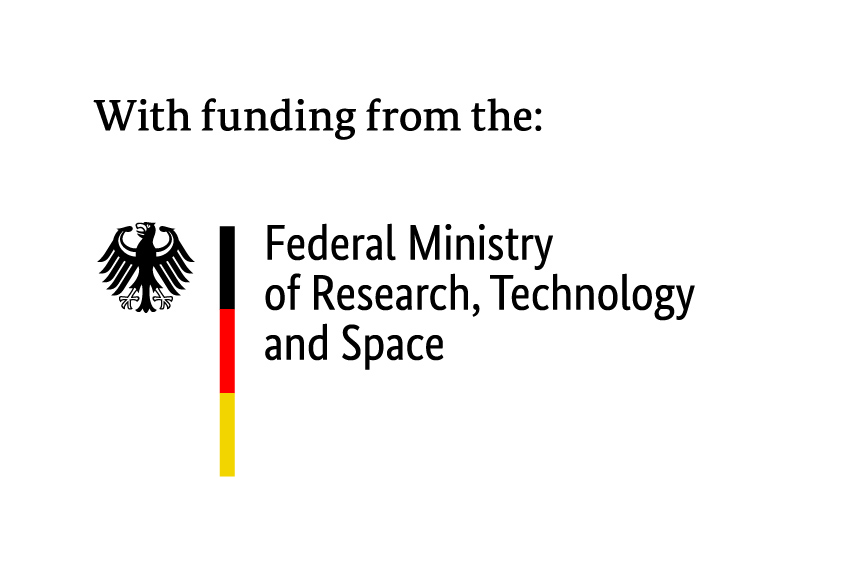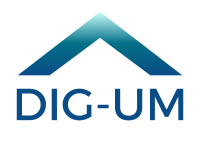Changes for page 2nd Workshop on Sustainability
Last modified by Angela Warkentin on 2025/07/16 15:13
From version 23.1
edited by Angela Warkentin
on 2025/03/12 06:42
on 2025/03/12 06:42
Change comment:
There is no comment for this version
To version 8.1
edited by Angela Warkentin
on 2025/03/11 08:57
on 2025/03/11 08:57
Change comment:
There is no comment for this version
Summary
-
Page properties (1 modified, 0 added, 0 removed)
-
Attachments (0 modified, 0 added, 1 removed)
Details
- Page properties
-
- Content
-
... ... @@ -1,14 +1,10 @@ 1 - ==**2nd Workshop on Sustainability in the Digital Transformation of Basic Research on Universe & Matter (2025)**==1 +**2nd Workshop on Sustainability in the Digital Transformation of Basic Research on Universe & Matter (2025)** 2 2 3 +What happened so far: 3 3 4 ----- 5 - 6 - 7 -=== **What happened so far: ** === 8 - 9 9 * 2023: In-person Workshop:[[ https:~~/~~/indico.desy.de/event/37480/>>url:https://indico.desy.de/event/37480/]] 10 10 * 2024: Follow up paper and online meetings 11 -** Publication:[[ https:~~/~~/arxiv.org/abs/2311.01169>>url:https://arxiv.org/abs/2311.01169]] Lastsustainability workshop paper: [[https:~~/~~/doi.org/10.1140/epjs/s11734-024-01436-4>>url:https://doi.org/10.1140/epjs/s11734-024-01436-4]]7 +** Publication:[[ https:~~/~~/arxiv.org/abs/2311.01169>>url:https://arxiv.org/abs/2311.01169]] 12 12 ** Online Discussion:[[ https:~~/~~/indico.desy.de/event/44490/>>url:https://indico.desy.de/event/44490/]] 13 13 ** Online Discussion:[[ https:~~/~~/indico.desy.de/event/45927/>>url:https://indico.desy.de/event/45927/]] 14 14 * **2025: In-person Workshop: [[https:~~/~~/indico.desy.de/event/47133/>>url:https://indico.desy.de/event/47133/]] ** ... ... @@ -15,8 +15,8 @@ 15 15 ** **28 July - 1 August 2024** 16 16 ** **(Erholungsgesellschaft) Aachen** 17 17 18 -=== **Meeting documentation: ** === 19 19 15 + 20 20 **First Meeting with the Program Committee 19.02.2025** 21 21 Participation: Jan Bürger, Markus Demleitner, Günter Duckeck, Martin Erdmann, Benjamin Fischer, Martin Gasthuber, Thomas Kuhr, Judith Reindl, Markus Schumacher, Judith Steinfeld, Dwayne Spiteri, Achim Streit, Angela Warkentin, Sebastian Wozniewski 22 22 ... ... @@ -29,84 +29,11 @@ 29 29 **Second Meeting with the Program Committee 11.03.2025** 30 30 31 31 * Tuesday, March 11 from 4 - 5:30 pm: [[https:~~/~~/rwth.zoom-x.de/j/65088391540>>https://rwth.zoom-x.de/j/65088391540]] 32 -* Discussion & Results: [[attach:2nd Program Planning March 11.pdf||target="_blank"]] 33 -* Participation: Jan Bürger, Markus Demleitner, Martin Erdmann, Benjamin Fischer, Martin Gasthuber, Simran Guardasani, Thomas Kuhr, Markus Schumacher, Dwayne Spiteri, Angela Warkentin, Sebastian Wozniewski 34 34 35 35 36 36 37 ----- 38 - 39 - 40 -== **Discussion Basis for Second Meeting with the Program Committee 11.03.2025** == 41 - 42 -**Results: **[[attach:2nd Program Planning March 11.pdf||target="_blank"]] 43 - 44 -=== **1. Regarding Goals ** === 45 - 46 - 47 -|(% style="width:268px" %)((( 48 -**Goals** 49 - 50 -**(Up to discussion on March, 11) ** 51 -)))|(% style="width:1019px" %)((( 52 - 53 -)))|((( 54 -Author / Contact (optional) 55 -))) 56 -|(% colspan="1" rowspan="2" style="width:268px" %)**Definition**|(% style="width:1019px" %)What exactly is meant by “sustainability”|Achim S., Judith R. 57 -|(% style="width:1019px" %) | 58 -|(% colspan="1" rowspan="2" style="width:268px" %)**Track Progress / Review**|(% style="width:1019px" %)What is the concrete progress since the last workshop, what worked, what not.|Thomas K, Judith R. 59 -|(% style="width:1019px" %) | 60 -|(% colspan="1" rowspan="4" style="width:268px" %)((( 61 -**Ideas / Ansätze** 62 -)))|(% style="width:1019px" %)Based on input from referees I think one topic is whether we should collect data to effectively represent progress| 63 -|(% style="width:1019px" %)What new ansatzes (//approaches//) exist, what should we try|Achim S. 64 -|(% style="width:1019px" %) | 65 -|(% style="width:1019px" %) | 66 -|(% colspan="1" rowspan="5" style="width:268px" %)**Concrete Recommendation for Action & Outlook **|(% style="width:1019px" %)((( 67 -Konkrete Empfehlungen ans BMBF bzw. Projekte als einige white papers. 68 - 69 -(//Concrete recommendations to the BMBF and projects in the form of white papers//) 70 -)))| 71 -|(% style="width:1019px" %)((( 72 -Formation of focus groups for the implementation of identified guidelines from multiple projects, beyond the workshop (e.g. Connect Workshop 2024) 73 -)))| 74 -|(% style="width:1019px" %)((( 75 -Prüfsteine für einen dritten Workshop, der die Umsetzung der Fokusgruppen überprüfen kann. 76 - 77 -//Criteria for a third workshop that can assess the implementation of the focus groups.// 78 -)))| 79 -|(% style="width:1019px" %)A paper detailing how to combat the practicalities of tackling sustainability issues (in Germany)| 80 -|(% style="width:1019px" %) | 81 - 82 - 83 - 84 -==== **Goals: ** ==== 85 - 86 -* Focus is on implementation: Last workshop was impulse, this should enable implementation by developing concrete action points. 87 -* Do we need a paper? How can the results be optimally prepared? 88 -* At the end, concrete measures should emerge and be recorded (e.g. white paper, without publication, but with the aim of disseminating the measures widely) 89 -* Concrete assignments: To present at DPG, concrete “tasks” with responsible persons (to be reported, e.g. to Overview Board or next year in the workshop) 90 - 91 - 92 - 93 - 94 - 95 -=== **2. Regarding Contents ** === 96 - 97 - 98 -**Possible Focus: “Framework conditions for future research in ErUM in view of ultra-fast AI developments and the urgent need for sustainability in the area of digital transformation”** 99 - 100 -* **Title of the Workshop: Currrently "**[[2nd Workshop on Sustainability in the Digital Transformation of Basic Research on Universe & Matter>>url:https://indico.desy.de/event/47133/]]" 101 -* Sustainability: The topic of sustainability has been initiated by the first workshop/paper; we can already hear about ongoing research projects and draw further consequences for progress. 102 -* Ethics: The topic of ethics deals with AI developments and their significance for ErUM researchers. The aim here is to compile concrete AI developments and to identify probable development possibilities. 103 -** How will it be possible to realize predominantly human-performed research activities with the support of AI tools in the future? 104 -** Can we formulate a range for this? 105 - 106 - 107 - 108 108 |((( 109 -**Topics 32 +**Topics ** 110 110 111 111 **(Up to discussion on March, 11) ** 112 112 )))|(% style="width:1011px" %)((( ... ... @@ -149,109 +149,4 @@ 149 149 |(% style="width:1011px" %)Wie managen mir die Wirkungen auf die Nutzenden, so dass diese mitgehen? Wie können wir für diese Motivation schaffen?|(% style="width:222px" %) 150 150 |(% style="width:1011px" %)Sustainability Communication: how to spread motivation among scientists |(% style="width:222px" %) 151 151 152 - 153 - 154 - 155 - 156 -=== **3. Regarding Timetable ** === 157 - 158 - 159 -* What should the program consist of? 160 -* Should we open the workshop for contributions (abstracts) or only include invited talks? 161 - 162 -**Ideas so far: ** 163 - 164 -* Talks, discussion and interactive parts 165 -** Interactive part: tutorial on sustainable programming 166 -* Inspiration talks for fostering our creativity, followed by the possibility to discuss and exchange. Results of the discussion could then be presented in short talks 167 -* Talks in the morning,** paper-writing sessions in the afternoon.** 168 -** Different sessions have different sections to work on in Overleaf 169 -** Paper writing / Results: One moderator per session, who is also responsible for detailed documentation 170 - 171 - 172 - 173 - 174 -=== === 175 - 176 -=== **4. Regarding Invitations / Speaker** === 177 - 178 - 179 -* ** **Find & Invite Experts from Organisations (CERN, DESY, BMBF): Anwendungsorientierte (application-oriented) Talks 180 - 181 - 182 - 183 -|((( 184 -**Topics ** 185 -)))|(% style="width:1011px" %)((( 186 186 187 -)))|(% style="width:222px" %)Author / Contact (optional) 188 -|(% colspan="1" rowspan="3" %)**General **|(% style="width:1011px" %)International sustainability projects in science (WLCG, EU, …)|(% style="width:222px" %) 189 -|(% style="width:1011px" %)Overview of ideas in SUSFECIT research network (proposal handed in 2024 ErumM Data call)|(% style="width:222px" %)Markus Schumacher 190 -|(% style="width:1011px" %) |(% style="width:222px" %) 191 -|(% colspan="1" rowspan="3" %)**Tracking Progress **|(% style="width:1011px" %)((( 192 -Paper presentation: "Quantifying imperfect cognition with realized information gain" 193 -)))|(% style="width:222px" %)Torsten Ensslin (Confirmed Participation) 194 -|(% style="width:1011px" %)Know your footprint: status and next steps |(% style="width:222px" %)KYF authors 195 -|(% style="width:1011px" %) |(% style="width:222px" %) 196 -|(% colspan="1" rowspan="2" %)((( 197 -**CO2 /** 198 - 199 -**Footprint with regards to hardware ** 200 -)))|(% style="width:1011px" %)Full life cycle assessment of c02 footprint (production, cooling water, disposal) |(% style="width:222px" %)could ask Öko-Institut e.V (Markus Sch,) or Matthias Wadenstein, WLCG 201 -|(% style="width:1011px" %) |(% style="width:222px" %) 202 -|(% rowspan="3" %)((( 203 -**Operation of Data Centres /** 204 - 205 -**Use of Energy** 206 -)))|(% style="width:1011px" %)((( 207 -Ecology: How computing centres fit into the local surroundings 208 - 209 -* Re-using waste heat to provide heat for farming: vegetables 210 -* Novel power sources for datacentres, building datacentres where power is being generated 211 -)))|(% style="width:222px" %) 212 -|(% style="width:1011px" %)Sustainability implementation at major research facilities e.g. CERN, DESY (e.g. Serge Claudet, Cern energy management panel)|(% style="width:222px" %)Guenter Duckeck 213 -|(% style="width:1011px" %) |(% style="width:222px" %) 214 -|(% rowspan="2" %)((( 215 -**Sustainable Programming & Implications / User ** 216 - 217 - 218 -)))|(% style="width:1011px" %) |(% style="width:222px" %) 219 -|(% style="width:1011px" %) |(% style="width:222px" %) 220 -|(% rowspan="4" %)**Motivation & Ethics **|(% style="width:1011px" %)((( 221 -"Warum föderierte, standardsbasierte Infrastrukturen ethische Implikationen haben, sowohl was Vermeidung von Lock-in und ständiger Obszoleszenz betrifft als auch, was gleichen Zugang für alle, von Server- wie von Clientseite aus, angeht. (Abdeckung z.B. durch Markus Demleitner im Rahmen eines 10 Min Frühstückgesprächs möglich)" 222 - 223 -Why federated, standards-based infrastructures have ethical implications, both in terms of avoiding lock-in and constant obsolescence, as well as ensuring equal access for all, from both the server and client side. (Coverage, e.g., by Markus Demleitner in the context of a 10-minute breakfast discussion, is possible) 224 -)))|(% style="width:222px" %)Markus Demleitner 225 -|(% style="width:1011px" %)((( 226 -* RWTH Aachen AI Center Ethik Kommission: [[https:~~/~~/www.ai.rwth-aachen.de/cms/KI/Das-KI-Center/~~~~gglha/Team/>>url:https://www.ai.rwth-aachen.de/cms/KI/Das-KI-Center/~~gglha/Team/]] 227 -** [[Prof. h.c. Dr. h.c. Dr. ir. Wil van der Aalst>>url:https://www.pads.rwth-aachen.de/cms/pads/der-lehrstuhl/team/professor/~~pxtb/wil-van-der-aalst/]]: Fairness und Privacy 228 -** [[Prof. Dr. Saskia Nagel>>url:https://www.ethics.rwth-aachen.de/cms/ETHICS/Das-Lehr-und-Forschungsgebiet/Team/~~fcnwz/Saskia-Nagel/]] Ethics of AI, Impact of AI on Individuals and Society 229 -** [[Prof. Dr. rer. pol. Frank Piller>>url:https://www.time.rwth-aachen.de/cms/TIME/Die-Research-Area/Technologie-und-Innovationsmanagement-/TIM-Team/Lehrstuhlinhaber/~~eebc/Piller-Frank-T/]] Social Effects and Acceptance of AI 230 -** [[Prof. Dr. rer. nat. Astrid Rosenthal-von der Pütten>>url:https://www.itec.rwth-aachen.de/cms/ITEC/Der-Lehrstuhl/Team/~~szbg/Rosenthal-von-der-Puetten-Astrid/]] Human-Agent Interaction · Human and AI Shared Decision Making · Human-Robot Interaction · Social Effects and Acceptance of AI 231 -** [[Prof. Dr. Claudia Wagner>>url:http://claudiawagner.info/]] Natural Language processing · Network Science · Computational Social Science · Fairness of AI 232 -* Benediktiner Pater Christoph Gerhard (Sustainability and ethics) 233 -* Johannes Hartel (Sustainability and ethics) 234 -* “Lesch sieht Schwartz” (zdf Harald Lesch und Pfarrer Thomas Schwartz) 235 -* Prof. Dr. Dr. Wolfgang Rhode 236 -)))|(% style="width:222px" %)Jan Bürger 237 -|(% style="width:1011px" %)Invite someone from the Deutscher Ethikrat talking about assessment of technologies in the domain of “AI++”|(% style="width:222px" %)Achim Streit, Martin Erdmann, Thomas Kuhr, Judith Reindl 238 -|(% style="width:1011px" %) |(% style="width:222px" %) 239 -|(% rowspan="2" %)**Politics & Stakeholder / Implementation **|(% style="width:1011px" %) |(% style="width:222px" %) 240 -|(% style="width:1011px" %) |(% style="width:222px" %) 241 -|(% rowspan="2" %)**Teaching & Science **|(% style="width:1011px" %) |(% style="width:222px" %) 242 -|(% style="width:1011px" %) |(% style="width:222px" %) 243 - 244 - 245 - 246 - 247 -Consider: 248 - 249 -| |Distinctive Human Skills|How GenAI can supplement learning processes⁺ 250 -|Create|Engage in both creative and cognitive processes that leverage human lived experiences, social-emotional interactions, intuition, reflection, and judgment to formulate original solutions.|Support brainstorming processes; suggest a range of alternatives; enumerate potential drawbacks and advantages; describe successful real-world cases; create a tangible deliverable based on human inputs 251 -|Evaluate|Engage in metacognitive reflection; holistically appraise ethical consequences of alternative courses of action; identify significance or situate within a full historical or disciplinary context|Identify pros and cons of various courses of action; develop and check against evaluation rubrics 252 -|Analyze|Critically think and reason within the cognitive and affective domains; justify analysis in depth and with clarity|Compare and contrast data, infer trends and themes in a narrowly-defined context; compute; predict; interpret and relate to real-world problems, decisions, and choices 253 -|Apply|Operate, implement, conduct, execute, experiment, and test in the real world; apply human creativity and imagination to idea and solution development|Make use of a process, model, or method to solve a quantitative or qualitative inquiry; assist students in determining where they went wrong while solving a problem 254 -|Understand|Contextualize answers within emotional, moral, or ethical considerations; select relevant information; explain significance|Accurately describe a concept in different words; recognize a related example; translate to another language 255 -|Remember|Recall information in situations where technology is not readily accessible|Retrieve factual information; list possible answers; define a term; construct a basic chronology or timeline 256 - 257 -
- 2nd Program Planning March 11.pdf
-
- Author
-
... ... @@ -1,1 +1,0 @@ 1 -XWiki.Angela_Warkentin - Size
-
... ... @@ -1,1 +1,0 @@ 1 -2.3 MB - Content



